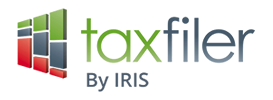New CGT reporting tool
Self-assessment returns aren’t set up for the change in capital gains tax (CGT) rates on the government filing system and will require a manual adjustment for 2024/25 to ensure the correct amount is paid. Why is there a problem and can a new online tool help?

At the Autumn Budget 2024, the government announced that the main rates of CGT would increase from 10% to 18% for basic rate taxpayers, and from 20% to 24% for higher rate taxpayers. This change took effect immediately on 30 October, and as this was part way through the tax year it has made reporting disposals for 2024/25 more complicated.
Unfortunately, HMRC has confirmed that the self-assessment tax returns will not factor in the increase in rates and an adjustment may be required. In order to assist with this it has launched a calculator. You may need to use the calculator if you sold or gifted assets after 30 October 2024, and the capital gain exceeded your annual exempt amount of £3,000. In order to use the calculator, you should have other relevant information to hand, such as your total taxable income for the year and details of any capital losses. The calculator will work out the adjustment figure that should be reported on your tax return to ensure the amount of tax due is accurate.
Related Topics
-
HMRC updates guidance for claiming new allowance
Qualifying expenditure on plant and machinery can qualify for a 40% first-year allowance from 1 January 2026. HMRC has now updated its guidance to help make claims. What do you need to do?
-
Get ready for Making Tax Digital for Income Tax
If you’re one of the (un)lucky individuals who need to join Making Tax Digital for Income Tax (MTD IT) from 6 April 2026, you probably know that this involves submitting regular, digital records to HMRC. But what do you need to do to prepare?
-
CT61









 This website uses both its own and third-party cookies to analyze our services and navigation on our website in order to improve its contents (analytical purposes: measure visits and sources of web traffic). The legal basis is the consent of the user, except in the case of basic cookies, which are essential to navigate this website.
This website uses both its own and third-party cookies to analyze our services and navigation on our website in order to improve its contents (analytical purposes: measure visits and sources of web traffic). The legal basis is the consent of the user, except in the case of basic cookies, which are essential to navigate this website.